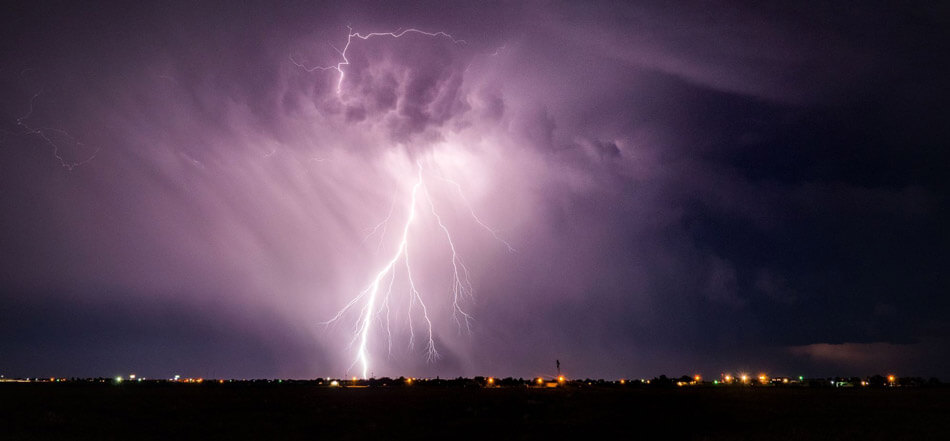With increasingly frequent and severe weather events, a rise in weather-related insurance claims drives insurers to minimize non-weather related risk.
Weather-related insurance claims can have a significant impact on insurance companies’ bottom line. As the frequency and severity of extreme weather events increase, insurance companies face a higher volume of claims for property damage, loss of belongings, and other weather-related incidents. This surge in weather-related claims motivates insurers to decrease exposure to preventable losses, specifically non-weather water damage. By partnering with water security partners like Beagle Services, insurance companies can develop and implement strategies to address this growing concern and need to reduce risk. Beagle Services specializes in water loss and prevention services, including installing automatic water shutoff valves, smart water sensors, and providing 24/7 monitoring with calls-to-action through Watchdog (a monitored alarm) by Beagle; homeowners and insurance companies across the country trust Beagle Services’ team of water security experts to install, monitor, and maintain water security for their properties.
Here are the key reasons why weather-related insurance claims drive insurance companies’ desire to minimize their exposure:
Financial Impact
Weather-related claims can be financially burdensome for insurance companies. Large-scale events like hurricanes, floods, wildfires, and severe storms can result in substantial payouts to policyholders. These payouts affect the profitability and stability of insurance companies, potentially leading to financial losses. By reducing exposure to preventable losses, insurers can mitigate the financial impact of weather-related claims and maintain their financial health.
Reinsurance Costs
Insurance companies often transfer a portion of their risk to reinsurance companies to manage their exposure to large-scale weather events. However, reinsurers also face increased costs due to the rising frequency and severity of weather-related claims. To maintain affordable reinsurance coverage, insurance companies need to demonstrate proactive measures to decrease exposure to preventable losses. By implementing risk reduction strategies, insurers can negotiate better terms and conditions with reinsurers, reducing their overall reinsurance costs. Beagle’s expertise on automatic water shutoff valves provides insurers with an excellent tool to decrease these loss exposures.
Premium Adjustments
Insurance premiums are typically determined based on the estimated risk of claims. When weather-related claims increase, insurance companies may need to adjust premiums to account for the higher probability of losses. However, raising premiums too significantly may lead to customer dissatisfaction or policy cancellations. To strike a balance, insurance companies seek to decrease exposure to preventable losses, as this helps stabilize premiums and maintain customer retention. Additionally, carriers may use automatic water shutoff valves to decrease overall risk and write business they would otherwise decline, thus, capturing new premiums.
Customer Retention and Satisfaction
Weather-related incidents can cause significant disruption and stress for policyholders. Insured individuals and businesses rely on their insurance coverage to recover from such events and protect their assets. If insurance companies are unable to promptly handle claims or pay out adequate settlements, customer satisfaction and loyalty can decline. By minimizing exposure to preventable losses, insurers can ensure a more efficient claims process, improve customer satisfaction, and retain policyholders.
Long-Term Sustainability
Insurance companies operate on a long-term perspective, considering the sustainability of their business over time. Insurance companies recognize that reducing exposure to preventable losses is crucial for their long-term sustainability. By implementing risk mitigation strategies, such as encouraging policyholders to utilize smart water security options that Beagle Services helps customers with everyday through professional installation, service, and monitoring, insurers can contribute to building more resilient communities and reduce their overall vulnerability to losses.
Regulatory Compliance
Insurance companies operate within a regulatory framework that governs their practices and obligations. Regulators may require insurers to demonstrate efforts to decrease exposure to preventable losses and promote risk reduction measures. By aligning with regulatory expectations, insurance companies can maintain compliance, avoid penalties, and demonstrate their commitment to responsible risk management.
In conclusion, weather-related insurance claims increase insurance companies’ desire to decrease exposure to preventable losses due to the financial impact, reinsurance costs, premium adjustments, customer retention and satisfaction, long-term sustainability, and regulatory compliance considerations. By actively managing risks and implementing preventive measures, Beagle helps insurance companies navigate their ability to provide reliable coverage to policyholders in the face of increasingly severe loss events. Beagle Services partners with many insurance carriers to help clients nationwide reduce their risk of water damage and loss through proactive plumbing, water security monitoring through Watchdog, and trusted service by our team of water security experts. Beagle Services serves as a trusted water security partner helping prevent water loss and water damage for homeowners and insurance companies.

